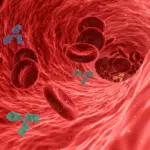Blog
Thymosin Alpha 1: The Immune-Boosting Peptide

Peptides have become a powerful tool in modern medicine. Their benefits continually increase, like the evolving landscape of the medical world. Thymosin Alpha 1 benefits are among these amazing compounds.
Peptide therapy has optimized health and helps combat certain illnesses. It has gained recognition in metabolism and tissue repair.
The healthcare profession is constantly searching for new ways to fight various infections.
The list of Thymosin Alpha 1 benefits continues to grow. It captured the spotlight for its immune-boosting potential. Derived from the thymus gland, this peptide has 28 amino acids.
It enhances immune cell function and helps the body target pathogens. Its method of support during infections makes it a potentially preventative treatment.
With immune-modulating peptides, Thymosin Alpha 1 (Ta1) takes the lead. It offers renewed hope for those seeking a natural alternative to resilient health.
What is Thymosin Alpha 1?
Thymosin Alpha 1 has captivated the attention of scientists and researchers. It’s a short chain of amino acids, derived from the thymus gland.
As part of the thymic peptides, it’s naturally produced in the body. Forming part of the gland’s important role in maturing T-cells.
It’s also produced in lymphoid tissue, such as lymph nodes and spleen. Ta1s are also present in non-lymphoid tissue, which includes lungs, kidneys, and brain.
This peptide is more often synthetically created using solid-phase peptide synthesis. It ensures quality and consistency.
Advances in biotechnology have allowed production using genetic engineering. Thymalfasin is the synthetic version of this peptide. Over 35 countries have approved this form of peptide as an immune enhancer.
The list of Thymosin Alpha 1 benefits have become varied since its discovery. Initially used as an immunomodulatory agent. Now also treats chronic infections, immunodeficiencies, and cancer.
It has a unique ability to enhance T-cell, dendritic cell, and antibody responses. These highlight the results observed in various clinical settings. It includes vaccine responses and also reducing infection rates.
While research is still ongoing, Ta1 stands out as a potent and well-tolerated peptide.
How Thymosin Alpha 1 supports immune function
Thymosin Alpha 1 plays an important role in immune modulation. It fine tunes the body’s defenses. This natural peptide restores the immune homeostasis. It affects the body in various ways.
T-cells
T-cells form part of the immune system and a type of white blood cells. It helps fight pathogens, protecting the body from illnesses.
One of Thymosin Alpha 1 benefits is how it enhances the T-cell function. It helps mature the undeveloped ones. It ensures that they can identify and fight germs.
After combating a disease, the Ta1 also ensures the regeneration of T-cells. This action provides long-term protection, especially against recurrent infections.
Dendritic cell activation
Dendritic cell (DC) is a type of immune cell that acts as an antigen presenting cell. It evokes a response from the immune system. They capture antigens and present it to the T-cells.
It’s also a phagocyte which targets pathogens and destroys them. Ta1 sharpens the immune system’s surveillance by altering dendritic cells. It influences maturation, cytokine production, which promotes a resilient immune response.
Ta1 interacts with the toll-like receptors and activates signaling pathways. It results in the production of cytokines.
Cytokines
Cytokines function as a messenger in the immune system. It signals the immune cells to fight the pathogens.
Cytokines help control inflammation in the body. Even with no pathogens, it signals other cells to keep the immune system functioning.
Ta1 can regulate the production of cytokines. Using this form of peptide therapy can help immunocompromised patients.
Clinical applications
Many clinical trials have explored Thymosin Alpha 1 benefits in various conditions.
- Viral infections: This immunomodulatory peptide has formed part of treating viral infections. These illnesses include infections such as hepatitis B, C, and COVID-19.
By enhancing cytokines, T-cells, and NK cells. It helps restore immune balance. When combined with antiviral therapies, Ta1 can improve the results.
- Cancer: Other Thymosin Alpha 1 benefits include treating cancer. Studies reveal Ta1 has a synergistic effect when combined with other treatments. The synergism can include chemotherapy.
It enhances the anti-tumor immune response. Researchers observed that this combination can significantly inhibit tumor growth.
- Chronic disease: As Ta1 enhances T-cell function, it helps with treating chronic conditions. It also stimulates the maturation of immune cells.
These actions can reduce excessive inflammatory by inhibiting pro-inflammatory cytokines. It also promotes the production of anti-inflammatory cytokines.
Natural immune enhancement vs suppression
Thymosin Alpha 1 interacts with the body through physiological pathways. Ta1 isn’t as harsh as immunosuppressants or broad-stimulus therapies. It works with the body’s immune system.
This natural peptide makes it valuable for patients needing immune support. It also doesn’t pose risks of hyper-inflammation or immunosuppression.
As an immunomodulator, it enhances overall immune function. In certain situations, Ta1 can also reduce immune suppression.
Thymosin Alpha 1 for autoimmune disease
Ta1 plays a vital role in restoring balance in the immune system. Autoimmunity occurs when there’s no homeostasis in this part of the body.
Using Thymosin Alpha1 for autoimmune disease shows promise as a potential treatment.
Thymosin Alpha 1 treating an overactive immune system
Ta1 as an autoimmune disease agent, can help manage these illnesses. The condition occurs when the patient has an overactive immune system.
It then attacks the body’s tissues, resulting in chronic inflammation and damage. Ta1 helps balance the immune responses. It assists with calming the overactivity, encouraging the body to protect itself.
This peptide modulates the immune function, preventing attacks on the healthy tissue. It suppresses pro-inflammatory cytokines.
It reduces the chronic inflammation found in certain diseases. These illnesses include lupus, rheumatoid arthritis, and Hashimoto’s thyroiditis. It also supports immune tolerance and repair.
Clinical application
Research shows that Ta1 can improve symptoms and markers related to autoimmune conditions.
- Lupus: Ta1 demonstrates the potential to control immune hyperactivity. It also promotes tolerance and reduces tissue damage.
- Rheumatoid arthritis: Ta1 can help reduce joint inflammation. It could slow down the progression of this disease. It delays the onset by restoring the balance between inflammatory and regulatory immune cells.
- Hashimoto’s thyroiditis: It may help regulate the immune attack on the thyroid. The result is better gland function. It also may reduce the antibodies that mistakenly harm healthy tissue.
Current research and safety
Ta1 has a record of being well-tolerated. Clinical trials data from immunocompromised patients, and those with chronic infections, support this claim.
Ta1 also doesn’t cause generalized immune suppression. It enhances immune function instead of suppressing it. This benefit makes it a desirable choice for long-term immune modulation.
Current research on Thymosin Alpha 1 of autoimmune disease applications reveals promising results. One positive outcome is its role as an immune balancer, rather than suppressing it.
This benefit offers hope for Ta1 as a safe option for treating autoimmune disorders. It harnesses the body’s own mechanisms to subdue inflammation. It does this while maintaining the immune function.
Can Thymosin Alpha 1 support weight loss?
The role of Thymosin Alpha 1 in weight loss remains captivating. Yet, its effectiveness requires more investigation.
It has promising attributes such as immune homeostasis and easing chronic inflammation.
Combined with its potential to influence metabolic pathways, could indirectly affect body weight.
Theoretical mechanisms
One theoretical mechanism of Ta1 is its ability to create immune homeostasis. Low-grade chronic inflammation can contribute to the development of obesity.
It’s often considered an inflammatory disease. Ta1 could reduce this type of inflammation by suppressing pro-inflammatory cytokines.
It could help improve insulin resistance and fat accumulation.
Ta1 may also potentially influence metabolic modulation. With enhancing the immune system it improves mitochondrial function and cellular energy balance.
Its effectiveness in these areas remains unconfirmed and requires further research. Yet, Ta1s positive effect on mitochondria indirectly impacts various metabolic processes.
Mitochondria’s function is vital to cellular metabolism and energy production.
Clinical data
Existing clinical data primarily focus on the efficacy of Ta1 in infectious diseases. These studies don’t address metabolic outcomes directly.
Currently, there is no clinical data that supports Thymosin Alpha 1 for weight loss. Certain animal studies don’t show any significant effects on body weight.
Without human trials, treat data suggesting otherwise with caution.
Thymosin Alpha 1 dosage and administration
Individuals usually have Ta1 administered via subcutaneous injection. This form of application makes it easier to self-administer under proper guidance.
It also ensures the user can experience all Thymosin Alpha 1 benefits.
This method involves injecting just beneath the skin. Common areas for this inoculation are the abdomen or thigh. It allows for measured absorption.
Dosage and protocols
Standard dosages range from 0.8–1.6 mg per injection. Certain clinical guidelines recommend administering Ta1 twice a week.
A common practice involves 1.5 mg injected twice a week for a few months. The dosage depends on the condition. Certain acute viral infections may require daily administering for a short period.
Other chronic conditions such as hepatitis or autoimmune diseases may require longer treatment. It could vary between 3 and 12 months. An assessment usually follows this length of therapy.
A treatment period varies with 8-weeks on and 8-weeks off. This cycle is popular with users wanting to explore immune optimization.
It allows for the body to respond without overstimulation. Practitioners may adapt the treatment plan based on the individual’s response.
Sourcing and medical guidance
Source Thymosin Alpha 1 from reputable pharmaceuticals. Another option is compounding pharmacies. These alternatives offer a pure and safe product. They may require a prescription.
Consult a qualified healthcare provider for a tailored dosage. They can also help monitor effects and assist in avoiding unwanted interactions.
Important considerations
Thymosin Alpha 1 needs refrigeration. After mixing, use it within the recommended time frame. While side effects are not common, there may be a mild reaction at the injection site. The user may also experience some transient fatigue.
Disclaimer
This overview is for information only. Anyone interested in exploring Ta1 should always consult a health practitioner before use. A qualified professional can advise on suitability, dosing, and monitoring.
Safety, side effects, and who should avoid it?
To experience Thymosin Alpha 1 benefits, certain side effects and concerns need consideration. Users tolerate Ta1 well and consider it safe.
The minimal side effects are mild and transient. Irritation at the injection site is a more common reaction.
These effects may include redness, swelling, discomfort, or itching. They fade within hours to days.
Certain clinical trials have reported a few rare side effects. Individuals have experienced flu-like symptoms such as headaches and fatigue.
Some irritations, such as gastrointestinal, may occur but are not common.
Serious adverse effects are very rare. It may appear as a rash or itching. Individuals could also experience difficulty breathing, which requires immediate medical attention.
A few isolated cases reported slight increases in liver enzymes. There have also been rare immune-related reactions which include polyarthralgia or hand edema.
Individuals with hypersensitivity to Ta1 or its ingredients should avoid using it. Certain groups should also avoid or exercise caution when using Ta1. These individuals include pregnant and breastfeeding women.
They should avoid it unless recommended by a health practitioner. Immunosuppressed patients should also avoid the use of Ta1. They should only consider it if Thymosin Alpha 1 benefits outweigh the risks.
Cancer patients need to consult their oncologist. Ta1s effects on tumor immunity need careful consideration.
The purity of the product and reputable sourcing are vital. Acquiring Ta1 from a respected vendor ensures premium quality.
Proper storage also contributes towards the safety of Ta1. Keeping it refrigerated and a correct reconstitution ensures its quality.
The future of Thymosin Alpha 1 in immune wellness
Exploring Thymosin Alpha 1 benefits confirms its significant potential in immune wellness. It’s naturally derived from the thymus gland. It’s also synthetically produced as thymalfasin.
Its benefits extend beyond infection control and chronic disease to autoimmune disorders. It helps restore immune homeostasis without harsh suppression.
Research into Thymosin Alpha 1 benefits, such as weight loss, are ongoing. Yet, its safety profile and well-tolerated nature makes it an ideal option.
In a world of peptide therapy, Thymosin Alpha 1 offers a natural way to support immune function. Explore how LIVV Natural can help you unlock a bright future in immune wellness.


